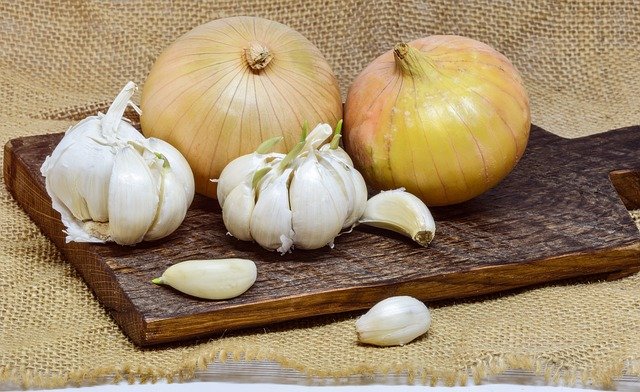Imagine that adding a simple scoop of probiotic powder to your morning routine could help soften the edges of a bad day. A new clinical trial from the University of Oxford hints at just that: probiotic supplements may ease negative feelings—even among people without diagnosed mood disorders. While researchers and mental‑health experts stress that probiotics aren’t a replacement for therapy or medications, this study adds to growing evidence that our gut microbiome profoundly influences how we feel.

Peering into the Gut‑Brain Conversation
The idea that “you are what you eat” takes on new meaning when you consider that approximately 95% of the body’s serotonin—a key neurotransmitter in regulating mood—originates in the gut. Through a two‑way communication network known as the gut‑brain axis, trillions of intestinal microbes send chemical signals that affect everything from cravings to anxiety levels. Could fine‑tuning this microbial ecosystem translate into more stable emotions?
Designing the First “Daily Mood” Probiotic Trial
To explore probiotics’ emotional benefits, Oxford researcher Katerina Johnson, PhD, and colleagues recruited 88 healthy adults (average age 22) who were neither overweight nor heavy drinkers or drug users. Participants were randomly divided into two groups:
- Probiotic Group: Took a daily 2‑gram sachet containing nine bacterial strains (various Bifidobacterium, Lactobacillus, and Lactococcus species) dissolved in lukewarm water.
- Placebo Group: Received an identical‑looking powder without live cultures.

Over 28 days, all volunteers completed weekly psychological questionnaires measuring anxiety, worry, depression, and negative affect. Crucially, they also recorded daily mood ratings, answering a simple question each evening: “Overall, how positive or negative do you feel today?”
The Power of Daily Tracking
Standard assessments—while thorough—often miss subtle emotional shifts because they slice feelings into categories (depression, anxiety, anger). By contrast, a single holistic mood score captures the full spectrum. And in this study, that tracking method revealed what the longer questionnaires did not: after about two weeks, the probiotic group reported steadily decreasing negative mood, a trend that continued through day 28. The placebo group showed no similar improvement.
“This is the first study to implement daily mood monitoring for probiotics,” Johnson says. “It gives us a much clearer picture of how emotions evolve in real time.”

What It Means—and What It Doesn’t
If a supplement can lower the emotional “low tide” without dampening the highs, that’s a notable advantage. Importantly, participants’ positive‑mood scores remained stable throughout, suggesting probiotics may target the circuits that underlie negative emotions—worry, irritability, sadness—without inducing emotional blunting.
Yet experts urge caution:
- Not a Standalone Treatment: “Probiotics are not sufficient as a standalone solution for mental illness,” warns Christoph Thaiss, PhD, of Stanford University.
- Supplement Quality Varies: Over‑the‑counter probiotics aren’t regulated like drugs, so potency and strain viability can differ widely.
- More Research Needed: While promising, these findings in young, healthy adults may not translate directly to older or clinically depressed populations.

Who Might Benefit Most?
Interestingly, the data hint that some people gain more than others. Those with higher baseline risk aversion—meaning they naturally worry more about negative outcomes—saw the greatest mood uplift. This suggests probiotics could one day be personalized, complementing existing treatments for people especially prone to anxiety or gloomy thoughts.
A Holistic Approach to Mental Wellness
Lisa Durette, MD, chair of psychiatry at UNLV’s Kirk Kerkorian School of Medicine, champions a balanced strategy: “If you’re exploring holistic practices—diet, exercise, probiotics—do so with full awareness of their benefits and limitations.” She notes that lifestyle shifts rarely lead to “emotional blunting” that some patients experience with certain antidepressant medications.
Before starting any supplement regimen, consult a healthcare professional—particularly if you’re already taking psychiatric medications or have underlying health conditions. A qualified provider can help you weigh the risks, select a reputable product, and integrate it safely into a larger mental‑health plan.
Practical Takeaways
If you’re curious about trying probiotics for a mood boost:
- Choose a Multi‑Strain Formula: The Oxford trial used a nine‑strain mix. Look for supplements backed by research, listing exact strains and colony‑forming units (CFUs).
- Commit to Consistency: Mood changes emerged around two weeks in the study—so give any new supplement at least a month to assess its effects.
- Track Your Feelings: Keep a simple daily mood journal. Note any shifts in stress, worry, or overall outlook to see if probiotics make a difference.
- Pair with a Healthy Diet: Feed your probiotics prebiotics (fiber‑rich foods like garlic, onions, and bananas) to help them flourish.
- Stay Informed: Follow emerging research—this field is evolving fast, and tomorrow’s discoveries could refine today’s recommendations.
The Road Ahead
As scientists continue decoding the gut‑brain axis, probiotics may become an increasingly valuable tool in our mental‑health arsenal. While they won’t replace therapy or medication, they offer a gentle, side‑effect‑friendly way to tip the balance away from negativity and toward a brighter, more resilient mood.
In the meantime, keep enjoying fiber‑rich foods, stay active, and sleep well—because building a mentally healthy gut often starts with the basics. And remember: every small step toward nurturing your microbiome may also be a step toward a more positive, balanced life.


